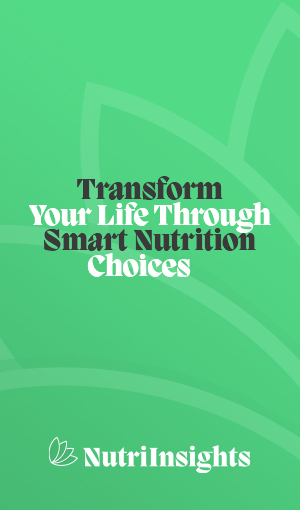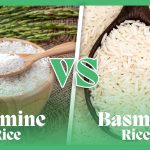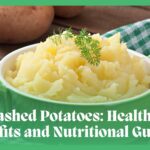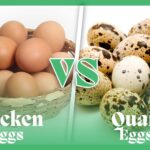Craving for a cheesy flavor during keto while looking beyond the usual options? Look no further; nutritional yeast is here at your service.
As the popularity of the ketogenic diet continues to soar, so does the increased search for various food selections. Among such foods, nutritional yeast or nooch has gathered the masses’ attention due to its cheesy and savory taste and rich protein content.
So, join us as we delve into the details of this query, “Is nutritional yeast keto-friendly?”
Understanding nutritional yeast:
Nutritional yeast- golden powdery fish-like flakes known as Nooch, is a common food ingredient in vegan pantries. It is derived from a deactivated yeast strain of one of the most popular species saccharomyces cerevisiae, a single-celled fungus used in winemaking, baking, and brewing. Nutritional yeast has gained popularity in the past few years and is located in almost every grocery store around the block. It is the principal factor of adding umami flavor to the dishes, known as a pleasant and savory taste.
Nutritional yeast imparts cheesy flavor to the recipes and takes on the role of parmesan by sprinkling on pasta, popcorn, and risotto and incorporating it into sauces for a savory taste. However, it is not considered ideal for baking as it is a deactivated strain and, therefore, cannot cause leavening. Nutritional yeast is popular among vegans and vegetarians due to its high protein, fiber, and vitamin B complex content.

Understanding the keto diet:
As you all know, glucose is the primary energy source for the body produced as a result of the breakdown of carbohydrates. The ketogenic diet is based on the principle that reducing the carbohydrate intake while increasing the fat and protein intake puts the body in ketosis. Ketosis is a state achieved when the body breaks down fat and produces ketone bodies that become the principal energy source for the brain and the body.
The ketogenic diet, a diet initially designed for epilepsy patients, has garnered an increased attraction in the past few years in terms of its weight loss benefits.
In the classic ketogenic diet, the Epilepsy Foundation accepted a total intake of carbohydrates and proteins no more than 20% of your daily calorie requirements while keeping fat intake up to 80-90%. However, in the modern keto diet, the carbohydrate intake is kept at 10%, while proteins have been given more freedom, about 20% of total calories. The rest should come from healthy fats.
The modern keto diet allows a wide range of foods to be consumed including meat (red meat, steak, ham, sausage, bacon, turkey, and chicken), fatty fish, eggs, butter and cream, cheese, nuts and seeds, healthy oils, avocadoes, low carb veggies (green vegetables, tomatoes, onions etc), and condiments.

Nutrient composition of nutritional yeast:
Energy:
According to USDA, 15 grams or three tablespoons of dried nutritional yeast renders 60 calories.
Carbohydrates:
Nutritional yeast is low in net carbohydrates, as out of the total of 5 grams of carbohydrates, 4 grams come from dietary fiber, leaving behind only 1 gram of net carbs.
Proteins:
With 8g of protein, it is a complete protein encompassing all the essential amino acids.
Vitamins and minerals:
Nooch loads up with beneficial micronutrients like Vitamin B12; the fortified ones fulfill 30-180% of the recommended dietary allowance (RDA).
Other essential vitamins and minerals incorporated in nooch are Calcium, Magnesium, Phosphorus, Potassium, Sodium, Vitamin B3, Vitamin B6, Vitamin B9, and Folate.
| Nutrients (15gm) | Amount |
|---|---|
| Calories | 60 |
| CHO | 5 g |
| Proteins | 8 g |
| Fiber | 4 g |
| Fats | Trace |
| Calcium | 20 mg |
| Magnesium | 20 mg |
| Phosphorus | 170 mg |
| Potassium | 320 mg |
| Sodium | 4.95 mg |
| Vitamin B3 | 15 mg |
| Vitamin B5 | 33 mg |
| Vitamin B6 | 9.6 mg |
| Folate | 40 mcg |
| Vitamin B12 | 25 mcg |
Is nutritional yeast keto-friendly?
Coming towards the main topic of discussion, is nutritional yeast keto-friendly? The answer to this question is rather complicated and dependent on the carbohydrate content of the nooch. While being on the strict keto diet, the inclusion of nutritional yeast in your diet becomes a dilemma since it is all centered on the low intake of carbohydrates.
The keto diet aims to limit the consumption of carbohydrates to achieve the state of ketosis, however, 15 grams of nooch incorporates 5 grams of carbohydrates. Although the macronutrient intake varies among individuals, the general guidelines suggest carbohydrate consumption between 20 to 50 grams.
So, if you consume 15 grams of nooch daily, you will receive 5 grams of carbohydrates from it alone which pushes your daily carb intake beyond the limit. However, some studies suggest that despite nutritional yeast being a good source of carbohydrates, most of its carbs are in the form of dietary fibers that bring down the net and available carbohydrates, making it suitable for a ketogenic diet if consumed considerably.
In a ketogenic diet, balancing carbohydrate intake in diet becomes a tactical maneuver, since you have to count every carb you consume. So, if you could keep track of your carbohydrate consumption, you can easily add nooch to your ketogenic diet.
The carbohydrate content of nutritional yeast:
The net carbohydrate content of nutritional yeast is low due to its dietary fiber. 100 grams of nooch provide 30 grams of carbohydrates and 20 grams of dietary fiber, leaving only 10 grams as net carbohydrates.
Net carbohydrates are the carbohydrates that are digested and absorbed by the body. It is calculated by subtracting the dietary fibers from the total carbohydrate numbers.
So, if you have ever seen or tried nutritional yeast, you will realize 100 grams is too much, while 15 grams of the flaky nooch is a considerable amount, which provides only 1 gram of the net carbs.
Health benefits of the keto diet:
Being a rich source of proteins, B vitamins, and minerals, they benefit the body in various ways. Nutritional yeast is a good source of vitamin B12, beneficial for the healthy nervous system, Red blood cell production, and DNA synthesis, whereas folate helps maintain a healthy pregnancy.
One essential nutrient often missing from the keto diet is fiber which can be minimized by adding nooch into your diet. The soluble fiber in nooch aids in constipation and reduces the risk of cardiovascular diseases by elevating the levels of HDL and reducing LDL. Potassium, an essential mineral, improves heart health by lowering blood pressure.
Nutritional yeast also has immune protective properties due to the presence of two compounds, beta-glucan and alpha-mannan.
Last but not least, the cheesy and nutty flavor of nooch makes it suitable for everyone to sprinkle on their foods for an extra burst of flavor and health.
Who should avoid it?
Although we have discussed the health implications of adding nooch into your ketogenic diet, certain individuals may want to avoid it.
People who suffer from glaucoma, inflammatory bowel disease, hypertension, and gout may experience the worsening of symptoms upon consuming nooch. Furthermore, people with yeast sensitivity and allergy may wish to stay away from nutritional yeast.
Keto-friendly alternatives to nutritional yeast:
While nutritional yeast is suitable to consume in the ketogenic diet, some people may not be able to include it in their diet. For that purpose, we have a few alternatives for nooch that you can enjoy while on the keto diet.
Baking soda:
A good alternative to nooch is the keto diet, as it is low in calories and contains no carbs. Baking soda is a leavening agent and can be used with another leaving agent, the cream of tartar.
Psyllium husk powder:
Another keto-friendly ingredient, Psyllium is a rich source of fiber and provides bulk to food without raising the carbohydrate content of the diet. Psyllium husk absorbs water and forms gel in the gut that helps improve gastrointestinal health.
Parmesan cheese:
A popular keto-friendly food, parmesan adds a similar umami and savory flavor to the food.
Vegemite/marmite:
This dark brown spread is more common in the UK and Australia than in the U.S. It is best used in recipes and sauces and gives a savory flavor and fewer bitter notes. They have a high protein content and low carbs, while their sodium content is pretty high.
Coconut amimos:
They have a sweet taste with a nutty and savory flavor. Coconut amimos are suitable for restrictive diets and allergies as they are gluten-free, soy-free, and yeast-free. Amimos are prepared from fermented coconut trees and are a good option for stews, casseroles, stir fry, dressings, and sauces due to their liquid consistency.
How much Nutritional yeast should you consume?
Exceeding the intake of nutritional yeast is highly unlikely since it is the deactivated strain of the yeast and can be used more like a seasoning by sprinkling it on food. However, for reference, it should be limited to ¼ cup or 15 tablespoons a day.
The carbohydrate content also depends on the brand, so check the label before buying a nooch.
Uses of nutritional yeast in the keto diet:
Nutritional yeast can be integrated into a ketogenic diet in a variety of ways:
- Sprinkle some nooch over your eggs or low-carb veggies for an extra cheesy flavor.
- Add it in sauces or soups as a thickener.
- Use nooch as a cheese substitute in high-protein keto pizza.
- Make a keto-friendly cheese sauce from Nooch.
In conclusion, nutritional yeast qualifies as a keto-friendly superfood offering a broad array of benefits to people on a ketogenic diet. However, its carbohydrate content should be kept in mind while sprinkling it on your food, as it may disturb your total carbohydrate intake. Whether you wish to include nooch in your keto diet journey as a staple or sprinkle it occasionally on your food for a burst of umami flavor, keep it under your dietary requirement.










This asset is phenomenal. The wonderful information exhibits the maker’s earnestness. I’m stunned and anticipate more such mind blowing posts.